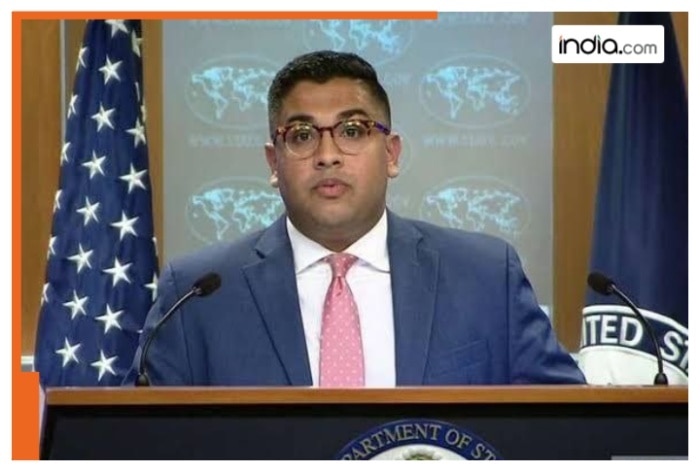 |
|
The recent press briefing by the US State Department saw an unusual query regarding the highly anticipated 2025 Champions Trophy. A Pakistani journalist directly addressed Principal Deputy Spokesperson Vedant Patel concerning India's decision to forgo participation in the tournament, scheduled to be held in Pakistan. This decision, announced by the Board of Control for Cricket in India (BCCI), cited security concerns as the primary reason for India's absence, proposing instead that all their matches be played in Dubai. The journalist highlighted the significance of the Champions Trophy, emphasizing its status as the second largest cricket event globally, second only to the Cricket World Cup. The question posed a diplomatic challenge, forcing the US official to navigate a sensitive issue between two nations with a complex and often strained relationship.
Patel's response was carefully worded, demonstrating a delicate balancing act. He skillfully avoided direct commentary on the India-Pakistan dispute, instead emphasizing the bilateral nature of the problem. He clearly stated that the decision regarding India's participation rests solely with the Indian and Pakistani governments, underscoring that the matter is not one for US intervention. This response is understandable given the long-standing tensions between India and Pakistan, and the potential for any US statement to be misconstrued or exacerbate the existing political climate. By refusing to comment, Patel maintained a neutral stance, avoiding the potential pitfalls of interfering in a sensitive geopolitical issue.
However, Patel's response wasn't entirely devoid of opinion. He subtly underscored the importance of sports diplomacy and its power to foster understanding and unity between nations. He specifically mentioned the strong support for sports diplomacy within the US State Department, citing both the current and former Under Secretaries for Public Affairs, Lee Satterfield and Liz Allen, respectively. This subtle emphasis on the unifying power of sports serves a dual purpose: it acknowledges the disappointment over India's absence from the Champions Trophy, while simultaneously promoting the broader US interest in fostering international cooperation through cultural exchange, including sporting events. This approach avoids direct criticism of India's actions while still advocating for the positive role of sports in international relations.
The incident highlights the intricate intersection of sports and international politics. Cricket, a deeply passionate sport in both India and Pakistan, often serves as a microcosm of the larger political relationship. The decision by the BCCI not to send the Indian team to Pakistan carries significant weight, reflecting the underlying geopolitical tensions and security concerns. The journalist's question, though seemingly simple, exposed the complexities of this relationship and the challenges faced by nations in balancing sporting competitions with the realities of international affairs. The US response, while non-committal on the core issue, subtly reinforced its commitment to the potential of sports diplomacy as a tool for promoting understanding and cooperation on a global scale.
The lack of a direct condemnation from the US might be interpreted in several ways. It could indicate a pragmatic approach, avoiding the risk of alienating either India or Pakistan. Alternatively, it might signify an acknowledgement of India's legitimate security concerns, even if these concerns prevent participation in a major international sporting event. The nuanced response reflects the careful diplomacy required when addressing sensitive issues that involve the relationship between two nations with a history of conflict. This incident underscores the delicate balance between promoting international sports cooperation and respecting the sovereignty and security considerations of individual nations.
Looking ahead, the absence of India from the 2025 Champions Trophy will undoubtedly impact the tournament's overall appeal and excitement. It also further emphasizes the challenges in fostering genuine sporting collaborations when geopolitical tensions run high. The situation highlights the need for continued dialogue and diplomatic efforts to address underlying security concerns and promote better relations between India and Pakistan, allowing for smoother and more collaborative participation in future international sporting events. The role of sports diplomacy, as highlighted by the US official, remains crucial in bridging such divides and fostering people-to-people connections that can transcend political boundaries.
